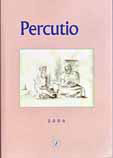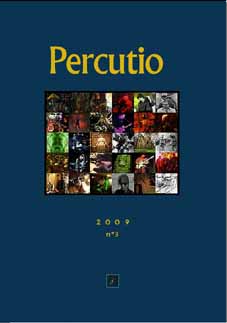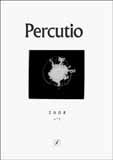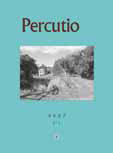The
Poet as Fraud: A Composite
by
Stephen Oliver 6 August, 2005.
(Part
One) (Part
Two)
Contempt
in courts and cities dwell,
No critic
haunts the poor mans cell
- Robert
Herrick
You
must first recognise your man. I say man because
the poet is emotionally an androgyne, and I
nominate the male gender because, traditionally,
this is where the greater number of poetasters,
poseurs and confidence tricksters prevail. A
circumstance that has something to do with the
amorphous nature of poetry, especially when
one departs from traditional forms. Any attempt
to employ these structures by the uninitiated
too quickly exposes those selfsame practitioners
as either provincial typing instructor, school
mistress, or bookish academic intent upon building
verbal monuments to him or herself, contradicting
Johnstons homage to Shakespeare Thou art
a monument without a tomb - by paying dues
to a moribund Augustan age and writing endless
screeds in the manner of Alexander Pope along
the lines of, As I gazed on the Palladian hill
/ My thoughts toward Horace, Virgil, and Bill
/ or scanning and attempting to emulate the
classical stylistics of someone like A. E. Housman,
and his A Shropshire Lad. For such a
person, The Great War happened in someone elses
backyard and time stopped with Rupert Brooke
- though not because Brooke was [in essence]
a comic poet. This he fails to see.
No, our man is the quintessential modern man
and is, quick as a jack rabbit, already up and
running. The best thing that might come his
way is the middle class expectation of measurable
success, prestige and political opportunity
offered him by an Arts degree and appointment
to an English department in a leading city university,
- election to the editorial ranks of the University
Press and Art Funding bodies. He doesnt consider
himself a seer, but instead - something of a
missionary, his dutiful obligation to impart
knowledge and learning to the undergraduate
- and in some politically incorrect instances,
to the female undergraduate. There are to be
observed, therefore, innumerable variations
on a theme.
The composite poet in his academic incarnation
plans well in advance; he establishes his own
Creative Writing School affiliated to
the English Department of a leading university
in one of the capital cities. This allows him
to clone a beehive of disciples created in his
stylistic image, whom he can then relocate strategically
around the country in positions of political
influence; readers of poetry manuscripts in
leading university publishing houses, book reviewers
for leading metropolitan dailies, and literary
magazines and other organs of persuasion.
He
must conserve his energies in order to impress
on a long-term basis. For charlatanism to be
successful, it can only operate under a guarded
and inner watchfulness well hidden from ones
opponent. And almost everyone is an opponent
unless they have otherwise declared themselves
a disciple or by constant example, acted in
a manner conspiratorially sympathetic with his
more sinister side. An exchange of negative
insecurities, a shared hatred, a sleazy conspiracy,
is collateral enough. This is his inner sanctum
which must remain hidden from view at all costs.
He adopts a mask that appears to be passive,
non-threatening - but it is little more than
a screen over a churning anger at the very core
of his being which nevertheless continues to
feed upon itself. In order to maintain this
cloaked and true personality, he must assume
an act or persona that he can sustain with minimal
effort; he must to all outward appearances seem
the very picture of laid back elan and cool
- an act which must go the distance if he is
to be successful in his predatoriness.
Yet it did not take him long to discover that
he was not in fact a visual artist, no matter
how many times he mentioned Francis Bacon
or Diego Rivera at dinner parties. Monumental
sculpture was something he associated with boisterous
women in boiler suits, armed with raucous voices
and hairy legs - and if the occasion so much
as smelt of challenge - that wasnt for him.
At any rate, if Jack Kerouac could get down
a few syncopated words to jazz rhythms, [Marlon
Brando had pretty much cornered the market on
a brand of feminine/macho sexuality which appealed
strongly to his deep-seated bi-sexuality] then,
so too could he. All he had to do was get the
hip dialogue down pat and act the part. The
benefits of this were principally that you didnt
actually have to read or study the relevant
literature to any great extent, you just had
to know about it (a touch of Charles
Bukowski was a sure bet) and thats about as
much as most of the social set were doing anyway.
The rest could be filled in with a close network
of associates who were trying to pitch a similar
thing - usually with concrete, found and colloquial,
or open-form poetry backed up with a few screen
printing techniques, and by paying close attention
to current fads and viewpoints expressed by
the leaders of any one or other artistic movement.
Poetry under these conditions is seen as something
akin to a brand name or fashion statement. To
anybody entertaining such a career path, a few
helpful hints may be in order: if you live in
New Zealand, a smattering of pacific island
culture (especially, if you live in Auckland)
and a passing knowledge of Maori etiquette helps
a great deal, especially if you can correctly
pronounce place names - start with Maori streets
names and work you way through to the small
towns and local landmarks. Name drop a few up
and coming indigenous artists to adequately
display your current interest and ethnographic
sympathy.
To
sound a cautionary note though, what ever you
do, dont write as an authority on Maoritanga.
This defies all current politically correct
notions dealing with cultural appropriation.
You run the risk of having your house burnt
down by marauding activists. It is advisable
under these strict cultural conditions - not
to mention the clear threat to your personal
safety - to write only about your own
domestic comedy; drinking, mind games, dope-smoking,
careerist ambitions, and inter-sexual politics:
to preside as the somewhat removed voyeur, in
other words. If you live in Australia, show
empathy for indigenous land rights in a non-demonstrative
way, especially at generic art functions - if
possible, formulate a working interest in aboriginal
culture, especially, the art schools associated
with the various nations of that continent.
A scorched earth, Garden of Eden. The advantages
here of such smart moves are that you may secure
funding from Arts and film institutions to make
a short film on the subject Desert Art at
City Prices.
This
opens up all sorts of remunerative possibilities
(keep an eye to the video market) for long term
tenures and residencies, plus travel opportunities
and, maybe, a showing at the Sundance
Festival. If you can pull this off -
it wont be long before you are awarded your
first bottle of Grange Hermitage from
appreciative Paddington Gallery owners and collectors;
indeed, if you play your cards right, you might
even procure an original and signed limited
edition print from a leading and authenticated
aboriginal artist, which you can then hang prominently
to view over your rustic, whole-earth-wooden
dinner table.
But our man, the public servant, must like every
true bureaucrat, have a hobby - must act true
to type; it could be building valve radios or
vintage car-spotting. His well-publicized artistic
pursuits on the indigenous front has nothing
whatsoever to do with cultural preservation
- only the preservation of his continuing employment
prospects. The entire thing is a deep charade.
It is his attempt to secure a retirement package
- the fabled superannuation, and
nothing more save a little self-aggrandizing
along the way. Oh, the biting fear of discovery!
And
so by degrees he fails into meanness. He achieves
optimum ordinariness. As an Australian, you
will be aware that Sydney is the best place
to set up such a rort. Sydney is a town where
people can freely believe in their own bullshit,
and everyone is prepared to believe it along
with you, this mutual acknowlegement demands
a fine balancing act, a peculiar generosity.
To not play this game, that is, to be honest
in a supplicating way, is to be made anathema
- become social outcast as opposed to an acceptable
social pariah. Once youve got that procedure
under control, from thereon in social success
is a summertime breeze, a mere formality.
This
ensures the survival his poetic blood line (his
clones are rewarded with publication, residencies
and grants) and kills off at root any counter-force
or creative individualism which may, if allowed
free rein, contest his position in the public
arena - his stranglehold on the countrys poetic
future. Again, he might have found that the
freedoms of the 60s gave him his head, as it
were, and his early twenties afforded him innumerable
roles and guises in which to ply his trade as
narcissist and arch sexual opportunist. The
British novelist, Jeanette Winterson, is quoted
in the Times as saying: As far as books are
concerned, creative writing courses have done
to new writing what slugs do to lettuce eaten
it alive. Young writers now produce the same
kind of books in the same kind of way. They
have found a formula and it works. Of course
it works, it has been done a million times before.
Poetry and the song lyric; poetry as infotainment.
Take your pick, slam poetry dumbed down for
the masses. A sustained narrative of fashionable,
sexual cliché and gender politics at
worst.
So, our composite poet probably went to training
college and got a diploma to teach in secondary
schools, but only in the capacity of an Arts
teacher - an indeterminate role set up in the
mid-sixties because the climate allowed for
such things; for instance, open-plan and experimental
modes of teaching. So many individuals with
questionable credentials secured these positions
by strategically befriending certain poet-teachers
located within the administration centres of
capital cities. At the right time, and in Australia
- this was during the Whitlam era - you could
slip through the mesh without offering, one
way or another, any defined syllabus or tried
and tested knowledge on the subject. The
visual and Creative Arts as a subject
was as vague as you could possibly hope for.
Anyway, once safely ensconced within the bureaucratic
system, and registered as a permanent teacher
on art subjects, his career and superannuation
entitlements were secured for life:- he could
now cruise on a sinecure. He would risk nothing.
Had he come from an earlier generation, say
the 50s, then a career bureaucrat would have
been one of the few options open to him in New
Zealand; the Education Dept in an administrative
capacity, or some other government appointment,
maybe even a role in the Ministry of Energy
- formulating educational programmes for trainees.
Years of writing inter-departmental memos would
equip him with a prose style ready-made for
book reviews and little critiques on current
literary theory. This is a man (or woman) who
runs with the hounds and always backs what he
considers a winner in the literary stakes. He
will take few risks and will guard against jeopardising
his standing which on most things is ambivalent.
He promotes the young, up and coming writer,
the leaders of the new and emerging generation.
In
this way, he invests in his own literary career
by shoring up support amongst the young, and
against those in the establishment institutions
who regard him with happy indifference. If the
emerging writer doesnt show [in due time] signs
of fulfilling his or her promise as a person
with literary and political clout, and who doesnt
appear to have been accepted by the leading
clique of the day - then that person is just
as quickly abandoned for one who does. Our man
cannot afford to be seen compromising his public
face by supporting anyone other than those who
are seen as gaining positions of political leverage
at speed. This is done in the sure knowledge
that his literary endeavours are far from laudatory,
having remained on a plateau of mild but ineffectual
achievement for decades. His prose style is
at once positive but non-committal, underplaying
the salient points of the authors strengths
by patronizing his agreeability within the existing
pantheon of writers; a style in which he appears
to say something, but in effect, is giving
away nothing. This man has all the nonce
of a well seasoned old campaigner and knows
how to hedge his bets with the best of them.
His weekend hobby is restoring old valve radios.
Nonetheless, at this point he has discovered
that an act or image is pretty much the order
of the day. But which one - who is the best
role model? He tries a couple of combos; beat
and/or beatnik, pipe and horn-rimmed specks,
frantic artist - huge canvases sprayed with
paint pots - and for a while its fun riding
a bicycle over them, and selling them off a
la Pollock as bona fide works
of neo-abstraction: Cyclical Series Nos:
1 Reclining, and Cyclical Series No 2
Awakening. Henry Miller (he has read the
Tropic of Cancer) is invoked as his sexual
guru and liberator. He buries himself in the
grid system as a cage for the tortured soul,
but this form demands true vision which obviously
he does not possess - despises, in fact.
Finally, as he does not suffer from either a
bi-polar or schizoid disorder, and isnt on the
requisite medication which he believes is integral
to this role, he feels that there is little
advantage to himself in continuing with
that particular charade, and so abandons it.
Besides, the huge quantities of alcohol that
must accompany this stance are by far too ruinous
and would soon blunt his opportunistic edge.
The one thing that demands consistency is great
cunning and an unflagging vigilance. After all,
emptiness is a very big thing to hide. And never
let a chance go by babe,- especially
where women are concerned.
The
object lesson here is: seen to be seen.
Especially with women, [again] women as sexual
object. Women as acquisition. Any woman is fair
game; no mercy need be shown to other peoples
wives - when we first met on the bus, man,
it was good morning - and wasnt long before
it was - good morning darling - and, unhesitatingly,
anybody elses girlfriend. Women are paramount
in all these social manoeuvres, they belonged
to that social code of prestige by which our
composite poet measured others, and in
this light he regards women as trophies, as
living endorsements of his own self-gratifying
ego, while the business man by contrast, not
quite as enlightened, would regard them in similar
circumstances as mere ornaments, or personal
servants.
As to the teaching profession, students saw
through his act in an instant, and realized
that he was simply out to impress with image
sans substance. But then, secrecy and
duplicity were important weapons in maintaining
the illusion of the hip and the cool
designed at least to give the impression that
he was actually someone. This had the
effect of compounding his authoritarian personality
in the work place and, especially, at dinner
parties around his 'rustic' table, and these
literary gatherings he invariably orchestrated
on his own turf. He therefore became the control
freak - put-downs and power plays were the one
sole currency. On those few occasions when he
had to attend various other social gatherings
- writers centres, or the obligatory literary
function, he would act the flaneur (let
the chicks come to him) be noticed by
all means, but never appear to be the slightest
bit ruffled, or at least, not in public. His
androgynous disposition displayed itself in
a bitchy undermining of other peoples achievements
(which he obviously felt threatened by) and
in unaccountable eruptions of anger - like sun
spots from the core hatred of his being - especially
as he got older, but only in a one-on-one basis,
that is, if he thought he could get away with
it without witness. The school-yard bully in
his element.
The truly gifted, who refused to present a mask
to the world, he loathed like no other. By way
of a counterweight, he was regarded in the school
staff room with intense distaste - especially
by the up-and-coming (very PC) young gay and
progressive teachers, well informed and out
to make a name for themselves. Usually distinguished
by either red or blue rimmed designer spectacles.
Nonetheless, careerist to their bootstraps.
He was as relevant to them as an outdated combine
harvester - something left over from another
age; an irrelevancy - a free loader from the
Whitlam era, when funding was thrown at anybody
who cared to call him or herself an artist,
which launched the careers of many a successful
and mediocre talent.
In
short, our man seen as a dinosaur. Such a charge
he would readily admit to - if for no other
reason than to give himself the air of the misunderstood
working class hero. Still boasting the alternative
outsider he never in fact was. Although his
presence in the teaching profession was detested
by student and teacher alike, much as one would
an abandoned corpse in a hospital corridor,
the sentimentalist in him (such is the emotional
fascist at heart) wished it were otherwise.
Next, he must choose the correct location to
live in and to give credence to his image. Gentrified
working class inner-city suburbs meant that
you sided with the lumpen proletariat,
the working class bloke and the working class
ethic. Your brand of coffee and choice of wine
might suggest to the reader of Village Voice
- or even the New York Review of Books
the consummate host and connoisseur. This could
be forgiven (understandably, not every one could
successfully aspire to the lofty heights of
a Robert Hughes) under the guise of bohemian
generosity, and in establishing a reputation
within your small neighbourhood as an hospitable,
though not recognizably sartorial host.
Our poet had to remember that contrivance must
appear haphazard, casual. He dressed down. As
to the suburbs and environs, the choice came
down to:- in Sydney, Rozelle, Balmain and the
Blue Mountains - or he may even consider a house-boat
on an unpolluted waterway, (the arch sentimentalist
disguised as the arch lyricist) if indeed hecan
find both, which would set him up nicely with
a title for his first volume of memoirs; in
Melbourne, Clifton Hills, Brunswick and Apollo
Bay - yet the migratory paths along the east
coast of Australia is a two way flight path
- and he might decide (use-by date: mid-30s)
to head toward Byron bay, or up to Mullimbimby
to nurture sweaty dreams of breeding and/or
leaping upon the nearest politically correct
eco-bandwagon; in Wellington, Mt. Victoria,
Newtown, Island Bay and Paekakariki; in Auckland,
Ponsonby, Grey Lynn and Piha, and extending
as far as the Coromandel [home of the legendary,
albino possum] peninsular.
He did not consider himself a prolific writer,
producing just enough cut & paste and collage
verse to maintain a social profile. His first
book titled, Getting It Up For You, was
published in the late 60s through the Woof
& Weft Press who then put out regular
small print runs of poetry to an even smaller
readership. This book celebrated the sexual
game playing associated with the woolly idealism
of that era, and served as a record of his real
and imagined conquests within a radius of, maybe,
five kilometres. Sort of a dirty bomb
poetic. Strategies, parties and rouses planned
before the narcissistic backward looking gaze
of his bathroom mirror. One poem from this collection
will serve as a fairly typical example of the
style:
HEY
BABE!
Anyway,
no way
so
I said to Nicole
Stay!
dont go (for the day)
oh,
what a night
let me
take you down to the river
between
your thighs
babe,
let my love flow
&
do you see stars in your eyes (ha)
still?
(Yeah)
so dont go
help
me up by your love handles
cause
love is in the air
&
cous cous on the menu
so
I said to Nicole
Stay!
dont go (for the day)
oh,
what a night
but by
then she had split.
This
is perhaps his most anthologized piece and
contains about all anyone needs to know about
his philosophy on life, such as can be deduced.
Rarely would he submit a poem to the small
literary magazines because such an attitude
he considered too demeaning - unless of course
he was approached by the editors - and this
remained the state of things. At any rate,
his work appeared in very few literary magazines
during the intervening periods between publishing
two or three books with titles like (aside
from the one already mentioned) Bird Dog
Man, Bad Bitch Poems and, maybe,
I Dreamed I Was A Jazz Giant published
over a period of about 30 years.
Anthologies
were the prestige publications he sought,
believing that this provided irrefutable evidence
of his prominent contribution to generations
of hip poets, and the legacy of literature
generally. The fact that anthologies paid
a bare minimum to poets for their inclusions,
and served as a ready made money spinner for
large publishing houses who might be fortunate
enough to market through the education and
library systems - with an outside chance of
international distribution - didnt particularly
phase him in the least. Given his narrow-band
view of life - anthologies represented acceptance
by an upbeat clique, and something he elevated
in his own mind to the status of privilege.
As the author of this essay has written:
YOU
SEE THE ANTHOLOGY MAN
I am you
see the anthology man,
very much
the fashion, and so today,
I will
let you into my little plan.
I adopt
a style to seduce the fan;
(one feels
freed in a familiar way)
I am you
see the anthology man.
I shift
with fashion, a chameleon,
the man
for all seasons, and so today,
I will
let you into my little plan.
I am a
poseur but of marked élan;
(as the
ego-gathering tides hold sway)
I am you
see the anthology man.
A solipsist
does whatever he can,
the devil
take the rest, and so today,
I will
let you into my little plan.
Any talent
challenging me I ban;
(mine is
an exclusive brand of poesy)
am I you
see the anthology man?
I will
let you into my little plan.




